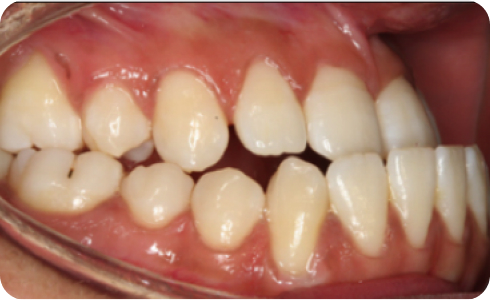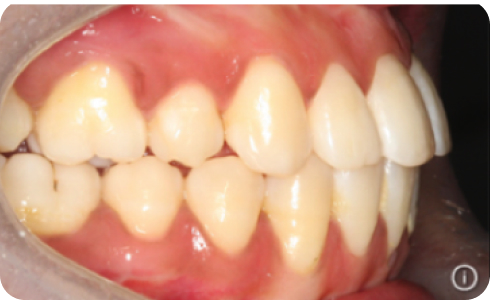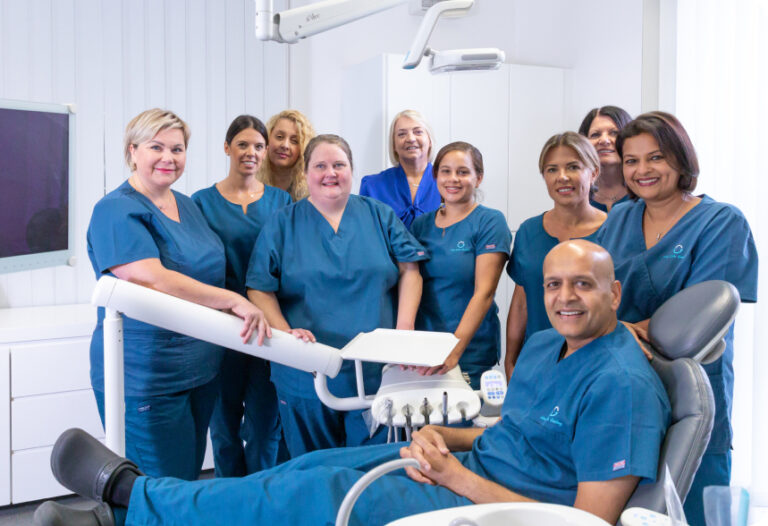Live Life Smiling
Considering orthdontics and jaw surgery?
If you are considering having orthodontics and jaw surgery you may have a number of questions you would like answered.
Why might I need surgery?
In order to correct the position of the teeth and provide a functioning bite, the supporting bones of the jaws must be in the correct position. If this is not the case, orthodontics alone will not correct the bite. Surgery will be required to move the jaws into the proper position so the teeth will then meet correctly.
If I need jaw surgery, why do I also require orthodontics?
If the jaws are to be moved into the correct position, it is important your teeth are moved so that they will meet properly after surgery.
What type of brace will I need to wear?
Fixed braces are used prior to jaw surgery because they permit the most accurate positioning of the teeth prior to the operation.
Are the braces removed just before the operation?
No, the braces remain in position during and after the operation for a number of months. During the operation they help the surgeon to position the jaws correctly. After the operation they help the orthodontist fine tune the bite with the aid of elastic bands.


How will the operation be done?
The majority of the operation will be done from inside your mouth.
Will my jaws be wired together?
Patients having jaw surgery used to have their teeth wired together for 6-8 weeks afterwards. However, this is now fairly unusual, as small metal plates are used to hold the fracture sites together. These plates are on the surface of the bone but beneath the skin, and generally remain in place forever. Very occasionally they are removed at a later date.

How long will I be in hospital?
This varies, but in general between 3-5 days.Can I eat normally?
Yes, up until the operation you should be able to eat normally. For your orthodontic treatment to work well and in the shortest possible time it is important you take care of your teeth and brace. In order to prevent damage to both, you should avoid the following;
- toffees, boiled sweets, sugared chewing gum, chocolate bars, etc.,
- fizzy drinks including diet drinks,
- excessive amounts of fruit juice,
- hard foods which might damage the brace such as crunchy apples, crusty bread rolls, etc. Hard foods can be eaten with care if you cut them up first.
After the operation you will have a more liquid diet for the first few weeks. However, the dietician at the hospital will advise you about this nearer the time.
Are there any after effects?
You will have some swelling and bruising after the operation. This will rapidly begin to subside over the first 2-3 weeks. For operations on the lower jaw it is fairly common to have some numbness of the lower lip for some weeks or months afterwards. In a very small number of cases a residual area of numbness will remain. This numbness will not affect movement of your lip, only the feeling in it, in a similar way to an injection at the dentist. As with any operation, you will have to take it easy for the first week or two afterwards. You should therefore expect to be off college/work for at least this length of time.
Will I look very different after the operation?
You will almost certainly look different to some degree. How different, usually depends on how much movement of the jaws is required. You should discuss this with your orthodontist/oral and maxillofacial surgeon.
How long will the overall treatment take?
It usually takes 12-36 months but will vary according to how severe your case is. Failed and cancelled appointments or repeated breakages of the brace will add to the overall treatment time.
How often will I need an appointment?
You will need frequent and regular appointments with the orthodontist during treatment for the brace to be adjusted.
Do I still need to see my regular dentist?
Yes. It will be important you still have check-ups with your regular dentist throughout orthodontic treatment. Your orthodontist will not be checking your teeth for decay.

